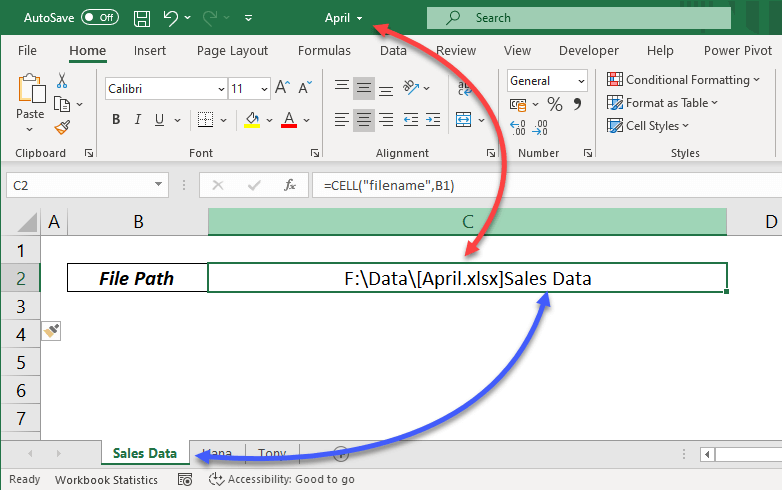5 Ways to Check if Excel Sheet is Empty in Java

In software development, particularly when dealing with data manipulation or processing, it's often necessary to verify if an Excel sheet is empty before performing operations. Java, with libraries like Apache POI, provides multiple ways to accomplish this task. Here, we will explore five different methods to check if an Excel sheet is empty, ensuring efficiency and reliability in your code.
Using Apache POI

Apache POI is a popular library for working with Microsoft Office file formats including Excel files. Below are five methods you can use:
1. Check for Non-Empty Cells

The simplest method involves checking each cell in a row or sheet to see if any contains data:
import org.apache.poi.ss.usermodel.Sheet;
import org.apache.poi.ss.usermodel.CellType;
public boolean isSheetEmpty(Sheet sheet) {
// Iterate through each row and cell
for (Row row : sheet) {
for (Cell cell : row) {
if (cell.getCellType() != CellType.BLANK) {
return false; // Sheet is not empty
}
}
}
return true; // If no non-empty cells found, the sheet is empty
}
✅ Note: This method assumes that an empty cell is considered as blank, which includes all forms of empty cells including formulas that evaluate to empty strings.
2. Row Count Method

If the document has no rows or just one row (often used for headers), it might still be considered empty for practical purposes:
public boolean isSheetEmpty(Sheet sheet) {
int rows = sheet.getPhysicalNumberOfRows();
return rows == 0 || (rows == 1 && sheet.getRow(0).getPhysicalNumberOfCells() == 0);
}
📝 Note: This method considers a sheet with one row containing no cells as empty, which might not be accurate for all cases.
3. Check for Last Row and Cell

This method involves finding the last row and cell with data:
public boolean isSheetEmpty(Sheet sheet) {
int lastRow = sheet.getLastRowNum();
if (lastRow < 0) return true; // No rows at all
Row lastRowData = sheet.getRow(lastRow);
if (lastRowData == null) return true;
int lastCell = lastRowData.getLastCellNum();
if (lastCell <= 0) return true; // No cells
return lastRowData.getCell(lastCell - 1).getCellType() == CellType.BLANK;
}
⚠️ Note: If the last cell in the last row is empty but there's data somewhere else, this method could lead to false negatives.
4. Using XSSFSheet GetEnumerator

Apache POI also provides an enumerator which can be used to navigate through cells:
import org.apache.poi.xssf.usermodel.XSSFSheet;
public boolean isSheetEmpty(XSSFSheet sheet) {
Iterator<Row> rowIterator = sheet.rowIterator();
while (rowIterator.hasNext()) {
Row row = rowIterator.next();
if (row.getFirstCellNum() >= 0) {
return false;
}
}
return true;
}
🔍 Note: This method stops checking at the first non-empty cell, making it efficient for large sheets.
5. Checking Sheet Cell Count

Apache POI provides methods to get the number of cells in a sheet:
public boolean isSheetEmpty(Sheet sheet) {
int totalCells = 0;
for (int rowIndex = sheet.getFirstRowNum(); rowIndex <= sheet.getLastRowNum(); rowIndex++) {
Row row = sheet.getRow(rowIndex);
if (row != null) totalCells += row.getPhysicalNumberOfCells();
}
return totalCells == 0;
}
📊 Note: This method sums up all non-null cells across all rows, giving an accurate measure of content presence.
In your Java programming tasks, selecting the right method to check if an Excel sheet is empty depends on the context of use. Each method has its advantages:
- Check for Non-Empty Cells - Precise but can be resource intensive for very large spreadsheets.
- Row Count Method - Quick for sheets with obvious empty states but may miss nuances.
- Check for Last Row and Cell - Focuses on the end of the sheet but needs careful handling.
- Using XSSFSheet GetEnumerator - Efficient for sheets with early data, but potentially inaccurate if the first row has empty cells.
- Checking Sheet Cell Count - Offers the most thorough check but can be slow on large files.
When dealing with Excel sheets, consider not only the method’s efficiency but also its accuracy in detecting sheet emptiness. Here are some key considerations:
- Think about performance when dealing with large datasets.
- Evaluate the accuracy needed for your specific case.
- Consider the data structure of your Excel files, as empty headers or sparse sheets might affect results.
In summary, these methods provide a broad spectrum of ways to determine if an Excel sheet is empty. The choice among them should be driven by the Java application’s specific requirements, the structure of your Excel files, and performance considerations. Each approach offers unique benefits, and with an understanding of how Apache POI interacts with Excel files, you can choose or even combine these methods to fit your needs effectively.
What is Apache POI?

+
Apache POI is a Java API for Microsoft Documents, allowing developers to create, modify, and read Excel files in various formats like .xls, .xlsx, among others. It provides an extensive library for manipulating file formats used by Microsoft Office.
Why should I check if an Excel sheet is empty?

+
Checking if an Excel sheet is empty is crucial for:
- Avoiding errors in data processing or report generation.
- Determining if data needs to be loaded or if placeholders should be used.
- Ensuring the integrity of downstream operations that depend on the presence of data in the sheet.
Are there limitations to these methods?

+
Yes, each method has its own set of limitations:
- Check for Non-Empty Cells: Can be slow for large files.
- Row Count Method: May miss empty cells or consider a sheet with only headers as empty.
- Check for Last Row and Cell: Relies on the presence of data at the end, missing if the sheet ends with empty cells.
- Using XSSFSheet GetEnumerator: Might not detect if the first row has empty cells but data follows.
- Checking Sheet Cell Count: Comprehensive but time-consuming for large datasets.



